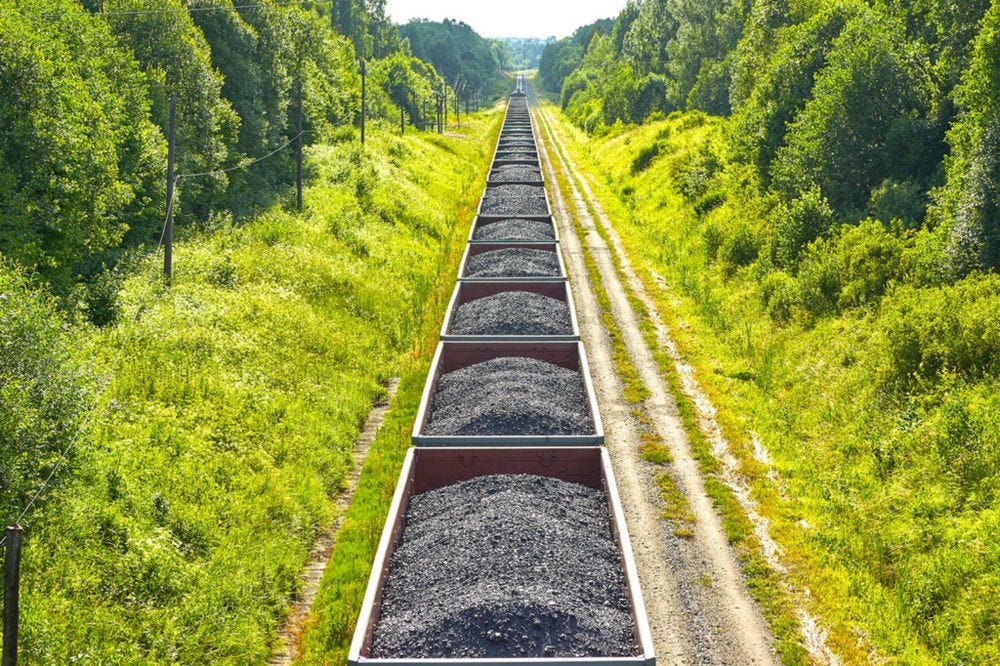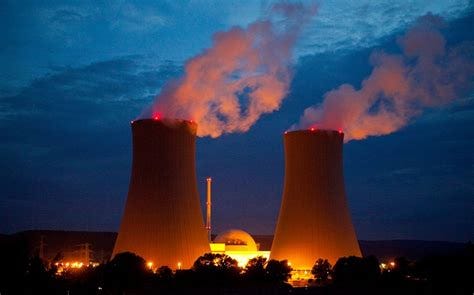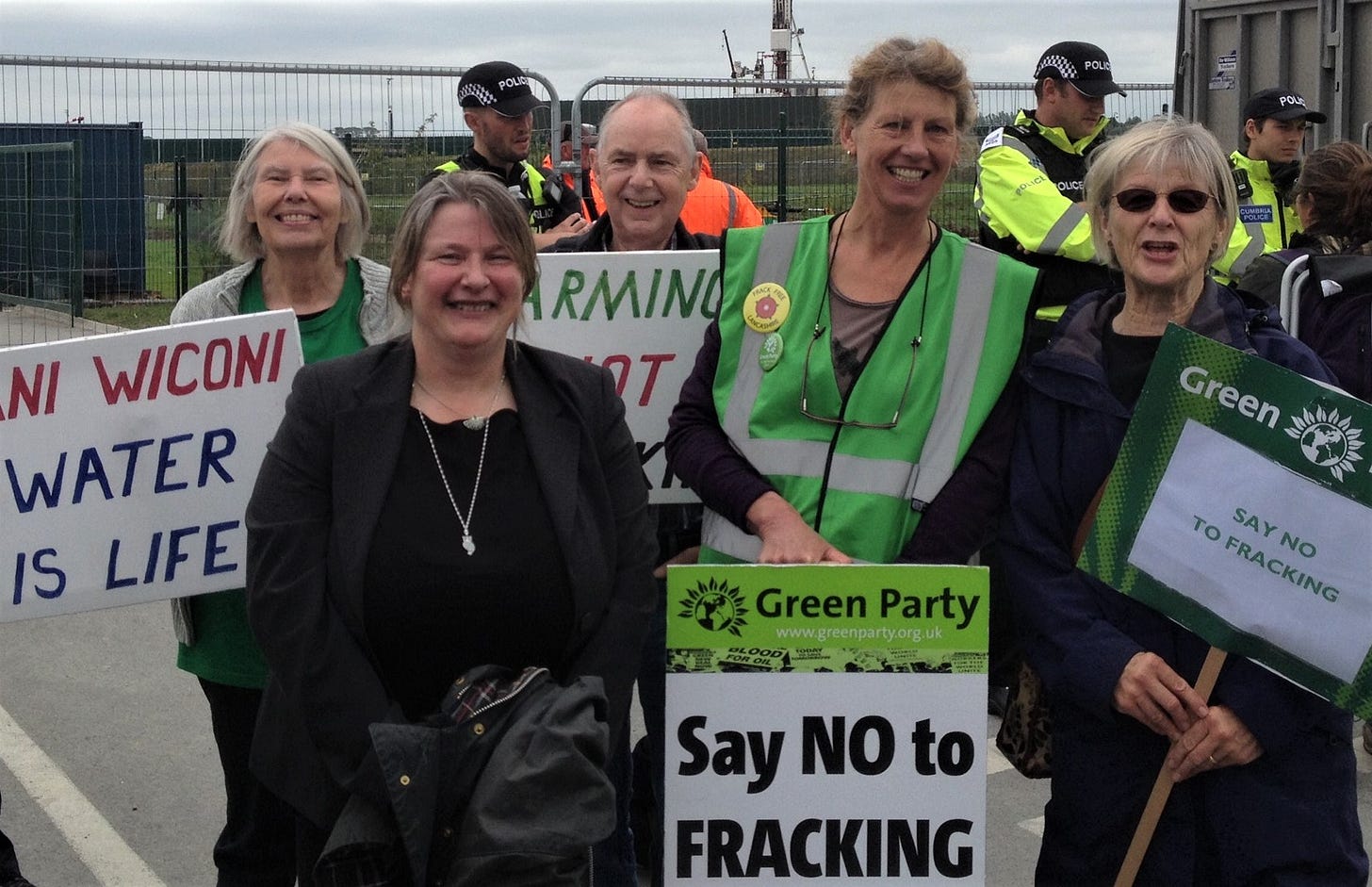How Greens increased carbon emissions
And will continue to do so in the future.
To promote long-term economic growth, developing nations desperately need abundant, affordable, and secure energy systems. In particular, they need advanced electrical grids that enable every home, industry, and commercial building to harness the awesome power of electricity.
Western nations take for granted the ability to plug in lights, kitchen appliances, computers, air conditioning, and other electric-powered products. They also take for granted battery-powered products that recharge via those same wall outlets. Most electric and battery-powered products are far cheaper than the alternative, but they need a robust electrical grid to function.
Few investments would do more to promote long-term widely-shared economic growth in developing nations than a robust electrical grid. Unfortunately, this is diametrically opposed to Green ideology because this goal cannot be accomplished without fossil fuels, nuclear or hydroelectric power. And Greens oppose all of them.
Concern for increasing global carbon emissions is legitimate, but we cannot implement policies that undermine progress in wealthy nations and throw out the possibility of progress in developing nations. We must first promote progress and secondly, we must mitigate the negative side-effects of that progress on the natural environment. One of those negative side effects is climate change. Another is air and water pollution.
Fortunately, there is a way to do so, but such a policy would be very different from current Green policies.
Most of the following is an excerpt from my second book Promoting Progress: A Radical New Agenda to Create Abundance for All. You can order my e-books at a discounted price at my website, or you can purchase full-price ebooks, paperback, or hardcovers on Amazon.
Other books in my “From Poverty to Progress” book series:
See also my other posts on Energy:
The Failure of Green Energy Policies
Despite investing trillions of dollars in renewable energy sources, governments implementing Green energy policies have not been able to substantially lower global carbon emissions. While the increase in global carbon emissions has slowed a bit, the trend is still upward. So by their own criteria, Green energy policies have failed.
Renewable energy sources have not substituted for fossil fuels (as is the declared goal). Renewable energy sources have been in addition to fossil fuels. That is why Green energy policies will inevitably fail to lower global carbon emissions.
Since 1990, annual global carbon emissions have increased from 22.76 to 37.12 billion tons. The percentage of fossil fuels in global energy production has dropped only slightly from 85% to about 83%. In the United States, fossil fuels make up 79% of energy use, and it is not much different in Europe. If you believe that it is essential to radically reduce the global usage of fossil fuels to avoid a global catastrophe, then current Green policies must be regarded as a huge policy failure (Our World In Data).
Rather than admit that their energy policy is failing, Greens want to double down on failure by spending even more money. A lack of funding, however, is clearly not the problem. The amount of money invested in renewable energy over the last three decades probably makes it the single largest peacetime government program in world history. There is no reason to believe that additional resources will fundamentally change the outcome.
The fundamental problem is that the Greens opposed the Third Energy Transition, which would enable us to replace coal-burning with natural gas, nuclear, and hydroelectric power. Coal is by far the worst carbon and pollution emitter and solar and wind cannot replace coal at scale.
If the Greens could pivot and embrace the Third Energy Transition, we could:
Create an energy system that is abundant, affordable, and secure. This will keep human material progress going. This should include both wealthy and developing nations.
Mitigate the negative side-effects of that progress on the natural environment. This includes carbon emissions, air pollution, water pollution, wild habitat destruction, extinctions, and human health concerns.
Unfortunately, their extreme hostility to fossil fuels will not allow them to do that.
Green Opposition to Nuclear Power
This would not be the first time that Green energy policy has led to the opposite of their desired intentions. The massive expansion of coal usage in Asia did not have to happen.
Asian nations essentially adopted coal because it was the cheapest and most widely available energy source in their region. But it is not difficult to imagine a different world where nuclear energy is cost-competitive with coal.
Wealthy Western nations as well as Communist nations widely adopted nuclear power in the 1960s and 70s. The United States, Canada, the Soviet Union, France, Belgium, Finland, Sweden, Switzerland, Czechoslovakia, and other nations mounted serious nuclear programs.
During the 1960s and 70s, nuclear power seemed to be the energy source of the future. As is typical in new industries, as designs and construction techniques improved, costs dropped substantially. Lower costs built political support for further expansion, and the industry triggered a major energy transition. The nuclear industry bragged that electricity would soon become “too cheap to meter.”
The energy crises of the 1970s appeared to give nuclear power a major boost. Up until that time, oil-fired power plants were widespread, so dramatic increases in oil prices caused nations to look for alternatives. As natural gas was still in its infancy, the choice was clear: coal or nuclear.
Unfortunately, coal was the big winner. The single biggest reason why coal won was the mobilization of the environmental movement against nuclear power. Opposition started in the late 1960s, but then ramped up quickly in the 1970s. The incidents at Three Mile Island (no injuries or deaths) and Chernobyl (an obsolete design that was far less safe than Western designs) caused a wave of fear regarding nuclear power.
Public opinion turned from strongly supportive towards nuclear power to strongly opposed. In response, government regulations radically increased in their complexity, and construction costs performed a U-Turn. Whereas construction costs of nuclear plants in the United States had been dropping rapidly, they suddenly increased, so the energy source was no longer competitive with coal (Lane).
If the trend of declining cost of nuclear power had continued to the present day, nuclear power would be around 10% of its current cost. At such costs, every nation would have favored construction of nuclear-powered plants over coal. World carbon emissions would be 11Gt lower (Lane).
If nuclear plant construction costs had been much cheaper than coal over the last 30 years, Asia probably would have built nuclear plants rather than coal plants. We might have had radically lower global carbon emissions right now. But to my knowledge, no climate change activists have acknowledged the movement’s responsibility for vast amounts of carbon emissions.
Environmentalist opposition to nuclear power played a major role in Europe and the United States rapidly constructing coal plants during the 1970s and 1980s. Those coal plants were by far the biggest reason for increased carbon emissions in the West over the last 50 years.
And the biggest reason for coal’s victory was the environmental movement. That is right. The very same movement that today says that carbon emissions are a threat to human existence favored high-emissions coal over zero-emissions nuclear. Think about that for a minute.
If the environmentalist movement had been as pro-nuclear in the 1970s as they are pro-renewable today, government policy under Democratic administrations would have subsidized nuclear power instead of strangling it with regulations. The nuclear industry might have scaled up much faster, so that it could reduce production costs. These high production costs were created, not by technology, which almost always gets cheaper, but by government regulation. These regulations were put in place due to fears promoted by environmentalists.
I know that most Greens, like most people involved in politics, are just repeating what they have heard other people say, but at some point, they need to focus on practical solutions that might require them to change their policy stances. We instead need to focus on results. The results of Green opposition to nuclear power greatly increased global carbon emissions.
Green Opposition to Natural Gas
In the 1980s and early 1990s, the environmental movement was largely in favor of natural gas. Natural gas was correctly viewed as the only reasonable alternative to coal and nuclear power. As climate change became their all-consuming focus, environmentalists began to lump natural gas together with coal as a fossil fuel that needs to be eliminated as rapidly as possible.
Now climate activists are overwhelmingly opposed to natural gas. Climate activists work hard to ban fracking and new pipeline construction. They even oppose pipelines that will capture flaring natural gas that is being released directly into the atmosphere (essentially free natural gas that would reduce methane emissions). At this point, it seems impossible to change their minds, regardless of the facts.
This is a shame, as the Green prejudice against natural gas is the single biggest barrier to creating a workable energy policy that promotes human progress while mitigating damage to the environment.
Green Opposition to Hydro Power
Nor is nuclear power the only carbon-free energy source that is opposed by environmentalists. Environmentalists are also opposed to the construction of new hydroelectric dams. Many environmentalists also campaign to decommission existing hydroelectric dams. If one truly believes that we face a climate catastrophe, this makes no sense whatsoever.
Hydroelectric dams are by far the most widespread renewable energy sources. After decades of subsidies for wind and solar, they are still far behind hydropower in total global electricity generation.
Of the eight nations who have more than 30% of their total energy source coming from renewables, every single one of them has hydroelectric power as their primary source (Iceland, Norway, Sweden, Switzerland, New Zealand, Brazil, Canada and Austria). And yet you almost never hear about this accomplishment (Our World in Data).
Biomass and Biofuels
To make up for the intermittency of solar and wind, Greens advocate using biomass power plants. They also advocate using biofuels instead of petroleum.
Biomass and biofuels are not Green energy sources. They are very bad for the environment. Solid biofuels emit between 94 and 110 kg of carbon dioxide per gigajoule of energy, while bituminous coal emits about 95 kg and natural gas about 53 kg. Agricultural byproducts, peat and solid byproducts do even worse. This alone should disqualify biomass biofuels as a Green source of energy (Climate Registry).
Burning wood to generate energy on a small scale is perfectly acceptable. Burning wood left over from sawmills and manufacturing wood products also makes sense; manufacturing biofuels from algae does as well. Unfortunately, biomass has gone way beyond that and the natural environment is suffering.
Every material that mankind can find in nature for food or energy production can also be used by other living species. Driven by evolution, living species find a way to exploit every possible natural resource to survive. Land and trees are particularly valuable natural resources that nature needs.
Trees are tremendously important for thousands of woodland species of plants and animals. Burning wood at scale makes absolutely no economic or environmental sense. It is more expensive and more damaging to the environment than fossil fuels, which no known living species relies on for its survival. In addition, with the exception of open-pit coal mining, fossil fuels use far less of the land that could potentially be used for wild habitat.
Unfortunately, Green energy policies are actively subsidizing burning wood in the name of saving the environment. To avoid using natural gas, Greens support burning wood at times when solar and wind are unavailable.
This practice is particularly egregious in the United Kingdom. In order to pretend to meet their emissions goals, the UK recently started burning wood products in their coal-burning power plants. Because the UK has limited forest stocks, they import wood from the United States. That wood is cut, transported via truck, shipped using fossil fuels, and then burned.
Because the wood is harvested in a foreign country, the emissions do not count towards the UK’s national emissions goals. So, in the name of saving the planet, the UK is clear-cutting forests in the United States. It is hard to see this as anything other than a Green accounting fraud.
Biomass and biofuels are worse for the environment than coal and more expensive than natural gas. There is absolutely no reason to support either fuel source.
So Greens have opposed the three best energy technologies to replace coal-burning power plants:
Natural gas
Nuclear
Hydroelectric dams
And Greens support technologies that emit more carbon than petroleum:
Biomass
Biofuels
And in addition to the policy preferences that I discussed above, Greens are opposed to virtually all other realistic solutions, including:
Carbon capture and sequestration
Adaptation
Geo-engineering
Stopping immigration (which would keep emissions in the wealthy nations much lower)
Is there a viable alternative?
Fortunately, there is an alternative that much more closely aligns with human material progress by continuing the Third Energy Transition that has been delayed by Green political opposition.
We need to:
Create an energy system that is abundant, affordable, and secure. This will keep human material progress going. This should include both wealthy and developing nations.
Mitigate the negative side-effects of that progress on the natural environment. This includes carbon emissions, air pollution, water pollution, wild habitat destruction, extinctions, and human health concerns.
Most of the following is an excerpt from my second book Promoting Progress: A Radical New Agenda to Create Abundance for All. You can order my e-books at a discounted price at my website, or you can purchase full-price ebooks, paperback, or hardcovers on Amazon.
Other books in my “From Poverty to Progress” book series:
See also my other posts on Energy:













I am so tired of people jumping on the oppose everything bandwagon..It’s exhausting why can’t we appreciate our modernity and let’s build something. Chicken little environmentalists are fatiguing the worker and I agree the revolt often drives in the other direction and therefore nothing practical and rational gets achieved.